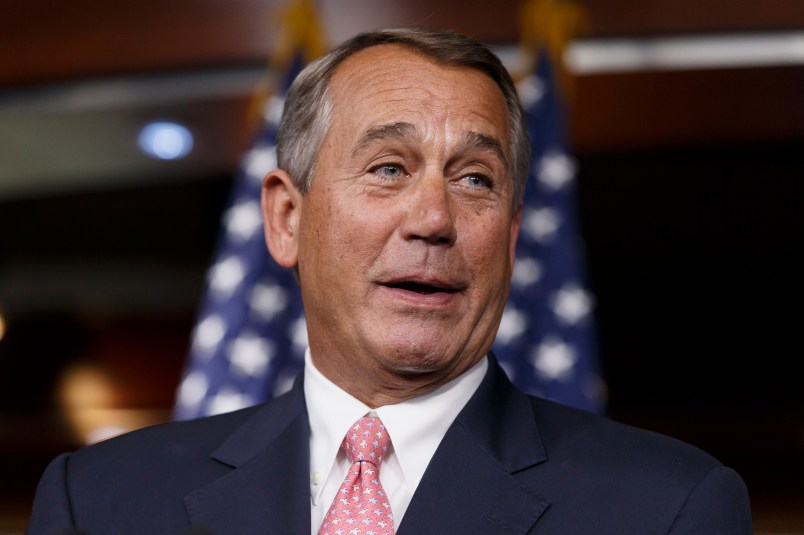What do House Republicans want to do with Obamacare? Depends on the day.
Last week, they passed a delay of the law’s individual mandate, pure political showmanship that appealed to the right-wing base that hasn’t given up the dream of fully repealing the law.
But Tuesday they’re expected to pass three minor tweaks to the law, with Democratic support — a rare bit of actual governing for the House when it comes to the Affordable Care Act.
Hold on, though. They’re not done yet.
Later this week they’ll hold payments to doctors under Medicare hostage unless Democrats agree to delay Obamacare’s individual mandate to buy health insurance, a non-starter with the Democratic Senate and the White House.
If your head’s spinning, that’s life for House Republicans and the health care reform law. They’re all over the place.
It’s part of the party’s broader struggle to decide exactly what it wants to say about the law that has driven its legislative and political agenda for the last four years.
Meanwhile, more concrete figures about how many Americans are benefitting under Obamacare are continuing to emerge. Gallup estimated Monday that the number of uninsured had dropped by three to four million people since the law’s coverage took effect in January.
So Republicans are confronting a new political reality: Any more votes for wholesale repeal can be equated with stripping health coverage from millions of people. After years of pledging to roll back the law, they don’t seem sure what to do now — and that’s crystallized in recent days in the House’s erratic legislating around Obamacare.

Some conservatives haven’t given up. Sen. Ted Cruz (R-TX) was still out there last week, pledging, as he always has, to repeal “every word” of the law. But GOP congressional candidates have been more unsteady. A Michigan Senate candidate endorsed her state’s decision to expand Medicaid under the law. A North Carolina Senate candidate called the law “a great idea” if only it could be paid for.
The last two weeks of the House’s agenda exemplifies this internal debate. Delaying the individual mandate, the heart of Obamacare’s insurance market reforms, is never going to happen with President Barack Obama still wielding a veto pen.
But the bills being considered Tuesday likely have a shot. They’re relatively minor tweaks, and GOP aides say they’re expected to pass with Democratic votes. There’s a political element in play — Republicans want to undermine the Democratic talking point that they’ve done nothing but obstruct Obamacare — but this is real legislating.
The three bills would:
- Amend the law’s employer mandate so that voluntary emergency services workers won’t be counted toward an employer’s employee total. In general, employers with fewer than 50 employees are not subject to the mandate.
- Amend the law’s employer mandate, in the same way, for employees who receive health coverage through the U.S. Veterans Administration.
- Amend the law’s individual mandate, providing an individual religious exemption from the mandate if complying would violate one’s “sincerely held religious beliefs.”
Senate Democrats and the White House haven’t outspokenly opposed the bills, and, with the expected bipartisan support, these proposals seem to have a real chance of actually becoming law. (Though the White House has already signed some other minor tweaks to the law, as House leadership aides will quickly point out.)
But then later this week, the Republicans will vote on a kamikaze plan that would result in doctor payment cuts under Medicare unless Senate Democrats and the White House agree to delay the individual mandate. It’s the same kind of political chicken over the law that led to last fall’s government shutdown, when the blame largely fell to the GOP.
At some point, Republicans have to make a decision. The growing number of people covered under Obamacare will demand it, sooner or later. Either they continue with political posturing over the law, passing bills that are sure to dead-end in the parts of government controlled by Democrats, or they recognize Obamacare is here to stay and figure out how to fix it to make it more palatable from their point of view.
This week’s votes in the House suggests they still haven’t figured out which route to take.






